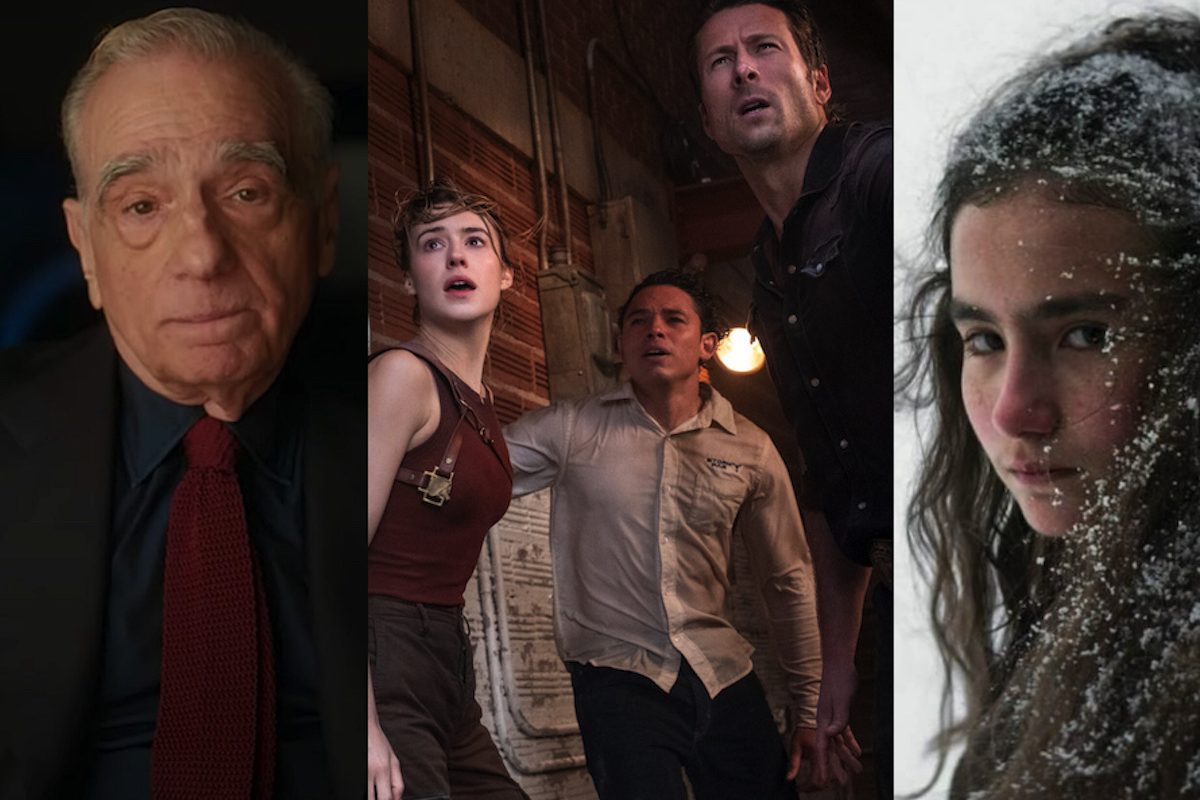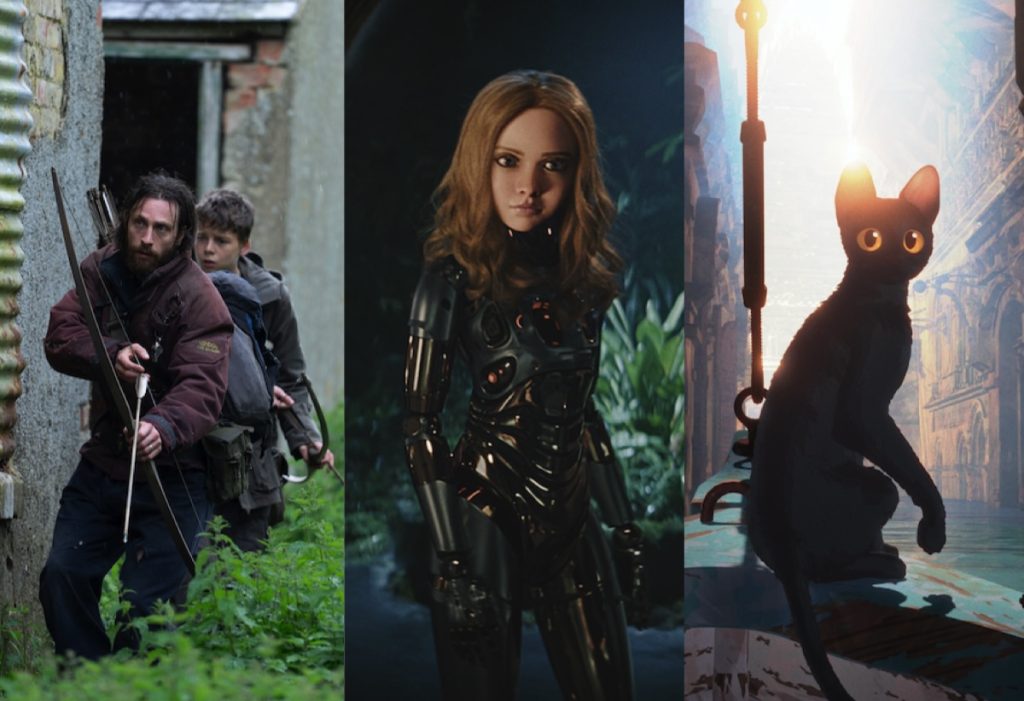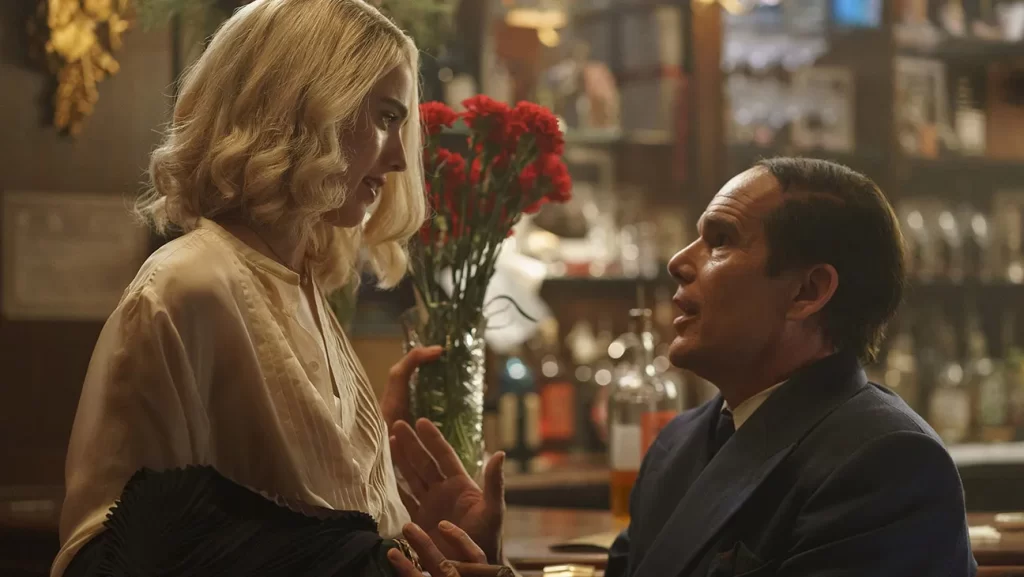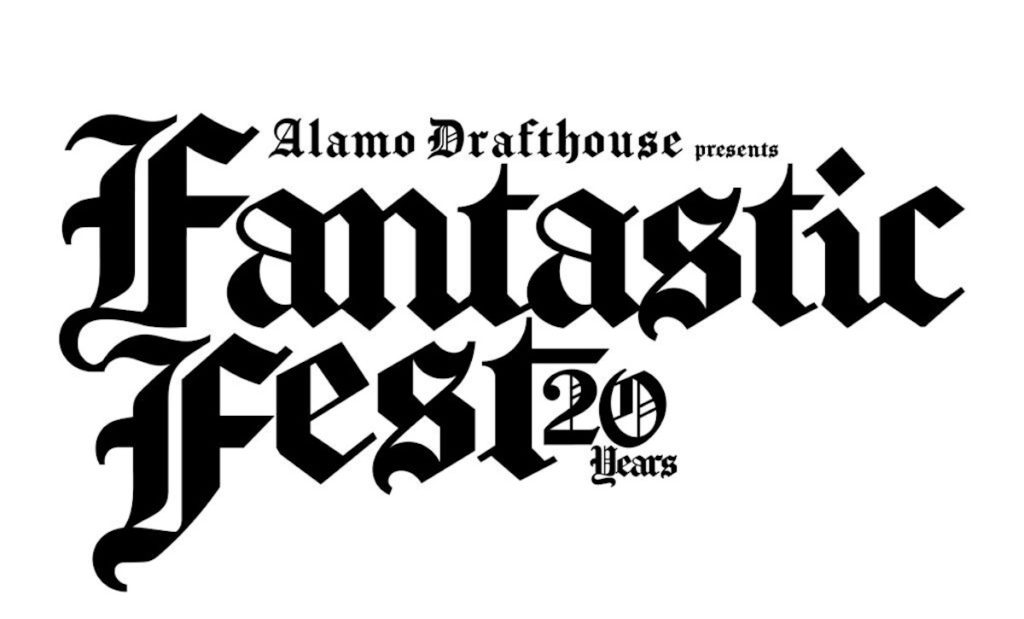Every Tuesday, discriminating viewers are confronted with a flurry of choices: new releases on disc and on demand, vintage and original movies on any number of streaming platforms, catalogue titles making a splash on Blu-ray or 4K. This twice-monthly column sifts through all of those choices to pluck out the movies most worth your time, no matter how you’re watching.
PICK OF THE WEEK:
The Cult of AGFA Trailer Show: The fine folks at the American Genre Film Association follow up their essential AGFA Horror Trailer Show disc from a couple of years back with another compilation of trailers, commercials, PSAs and onscreen ephemera, delightfully recut and remixed for maximum comic and nostalgic effect. The earlier compilation leaned heavily on ‘70s and ‘80s footage; this one goes a little later, creating a vibe recalling a ‘90s mall multiplex that’s gone to seed. I’ll admit that this stuff is like candy to me, so your mileage may vary, but those of you who like this kinda thing will really like this. (Includes audio commentary, bonus shorts, and uncut trailers.)
ON NETFLIX:
The Remarkable Life of Ibelin: Director Benjamin Ree tells the story of Mats Steen, diagnosed as a child with a rare and incurable degenerative muscular disease, who died at the tender age of 25. He spent most of the back half of his life online, playing video games, an understandable choice. But it was only after his death that his parents discovered “a wold we knew absolutely nothing about” — how their son had become part of an RPG community, creating an alternate personality of “Ibeline Redmore, famed detective and nobleman,” and creating friendships and connections therein. Ree cleverly creates the fantasy that became Mats’s real life, using chat logs, animation, and voice actors, and showing how this digital life allowed him experiences he couldn’t have otherwise. It’s a warm personal profile, but also one of precious few movies to really get what it is to live online.
ON BLU-RAY / DVD / VOD:
Twisters: While your correspondent was never exactly over the moon for the ’96 Twister, its specific lazy-weekend-cable-standby appeal can’t be denied. At its best, this sorta-sequel from Minari director Lee Isaac Chung recaptures that appeal; it’s a totally serviceable thrill ride, with a handful of spectacular set pieces and convincing “very bad weather” effects, and Chung is too good a director not to let a fair amount of Midwestern atmosphere drift in. The script is about as flimsy this time around, and unfortunately, star Daisy Edgar Jones doesn’t have the kind of charismatic grit it would take to bring life to her paper-thin character. But Glenn Powell calls up all of his movie-star juice as her enemies-to-lover foil, and is good enough for both of them; executive producer Steven Spielberg’s note to cut their climactic kiss may be his worst call since agreeing to direct Ready Player One. (Includes audio commentary, deleted scenes, gag reel, and featurettes.)
About Dry Grasses: Turkish director Nuri Bilge Ceylan’s latest (now out on Blu from Janus Contemporaries) runs over three hours, and every minute matters; the time he takes to set up the characters, and to establish their time and place, is vital to fully understanding the conflicts at its center. Samet (Deniz Celiloğlu) is a middle-school teacher who is plunged into a spiral of self-doubt and self-destruction by a misguided accusation, but this is not some straw-man manifesto about the dangers of cancel culture; it’s a reflective, contemplative picture, filled pointed and provocative conversations about the possibilities of change and individual action, culminating in a late stretch whose ideas and emotions are devastating. (Includes interview and trailer.)
Made In England: The Films of Powell & Pressburger: Martin Scorsese did not direct this bio-doc of British filmmakers Michael Powell and Emeric Pressburger (that credit goes to David Hinton); he is the executive producer and, per the credits, “presenter” in the best British tradition, which means he appears on camera to narrate and frame the picture in his own experiences and history with the subjects. But it feels like an extension of his ‘90s cinephile documentaries A Personal Journey with Martin Scorsese Through American Movies and My Voyage to Italy; he adopts a similarly hybrid position of professor, filmmaker, and fan, walking through the Powell and Pressburger filmography picture by picture, breaking down themes, narrative, technique, specific choices, and (most intriguing) the explicit connections to his own work – how their films influenced his, in detail. He doesn’t just cover the highlights and classics; he’s just as intrigued by their deep cuts and occasional misfires. Throw in well-curated interview and film clips, and you’ve got straight-up catnip for the #TCMParty crowd.
1982: Greatest Geek Year Ever!: It was only after watching this epic 164-minute valentine to the cinema of ’82 that I discovered it began as a miniseries, and perhaps the most sincere plaudit possible is that it does not feel like a bunch of television episodes stitched together. It plays, instead, like an energetic companion to Chris Nashawaty’s The Future Was Now, the recent (excellent) book focusing on eight of that summer’s most successful and/or influential sci-fi/fantasy pictures. Director Roger Lay, Jr. leans heavily on those titles, but fills the film out with detours into the year’s influential comedies and horror pictures as well, drawing on copious archival footage, clips, and interviews with a wide array of filmmakers, historians, and, well, geeks. It doesn’t interrogate the current effects of these trends as thoroughly as one might hope, but even its occasional acknowledgments of the less-than-rosy fallout is more than one might expect from a “JoBlo Movie Production.” (Includes audio commentaries, deleted and extended scenes, featurettes, and trailer.)
ON 4K:
The Sixth Sense: The closing revelation of M. Night Shyamalan’s monster 1999 hit—the first of two of his hits debuting on 4K—became a Usual Suspects-style classic, a simple yet devastating narrative recalibration that takes full advantage of our limited view of the events onscreen. But it also became a trap for the filmmaker, who was expected (either by audiences, by himself, or some combination of both) to replicate it in each subsequent picture, with rapidly diminishing results. In retrospect, everyone (Shyamalan included) seemed to forget that Sixth Sense wasn’t just about that ending, or great because of it; this was a film of emotion, tension, and expert storytelling, handsomely mounted (Tak Fujimoto’s photography is shaded with hushed anticipation and understated menace) and sensitively acted (this might be Willis’s finest work). The twist ending was the cherry on top of the desert, and not the entire meal. (Includes deleted scenes, featurettes, and trailers.)
Signs: Shyamalan’s third big hit, and other new 4K, is this 2002 alien-attack drama, which probably gets a bit less play than his other early bangers on account of Mel Gibson’s presence in the leading role. And you certainly don’t have to hand it to him, but it’s the kind of role Gibson did so well, a steely-souled everyman with a chip on his shoulder—this time, a priest who gave up the cloth after the tragic death of his wife. The director could have probably made a zippy sci-fi flick in the War of the Worlds (or, God help us, Independence Day) mold, but he does something trickier and more rewarding, keeping his storytelling decidedly small-scale and character-focused, crafting a pointedly post-9/11 examination of the modest ways that world-shattering events hit home. (Includes deleted scenes and featurettes.)
The Cabinet of Dr. Caligari: Kino Classics gives Robert Weine’s German horror classic the 4K treatment, and first of all, one loud vote for more silent movies on 4K; this one looks terrific, the deep shadows filled with rich, inky darkness, the tinted color sections bright and eye-popping. The movie itself has (breaking news) aged nicely as well, a creepy mad-hypnotist tale loaded with moody sequences, haunted performances, and an oft-imitated but never-duplicated set design. It’s one of the key films of German Expressionist cinema, and an ongoing influence on Gothic horror, and horror in general. (Includes multiple musical scores, audio commentary, and featurettes.)
Addams Family Values: In the world of comedy franchise filmmaking, a successful initial outing will sometimes give its makers the freedom to go a little wilder and push the envelope a little further the second time around. That’s certainly the case with Values, where director Barry Sonnenfeld follows the pleasant but forgettable 1991 TV adaptation with a darker, stranger, and far funnier take on the ghoulish family. It’s a rare cares of a sequel surpassing the original, thanks to the inspired casting of Joan Cusack as the film’s villain, and the sensible elevation of Christina Ricci into full-blown scene-stealer; her deadpan turn as Wednesday Addams, particularly in the uproariously funny summer camp sequence, is the stuff of legend. (Includes audio commentary and featurette.)
The Tenant: One of Roman Polanski’s more unsettling pictures — and that’s saying something — gets the 4K treatment from Vinegar Syndrome, giving a deserved spit-shine to the knockout cinematography by the great Sven Nykvist. Polanski cast himself in this 1976 thriller (a rare but not uncommon occurrence) as the new inhabitant of an apartment recently vacated by a suicide case. Suffice it to say he gets a good deal on the digs, but more than he bargained for. This kind of claustrophobic psychological horror has always been Polanski’s bread and butter, and he goes full-bore here, mixing in just enough cockeyed humor and outright paranoia to keep the average viewer off-kilter. (Includes audio commentary, interviews, and featurettes.)
Shanks: Now here is an odd one. The final film from the gimmicky schlock-meister behind The Tingler and House on Haunted Hill opens with the credit, “William Castle presents a Grim Fairy Tale,” and what follows is a peculiar mash-up of ‘70s horror, surrealism, and fantasy. The once-ubiquitous mime Marcel Marceau plays the two leading roles, as a deaf-mute puppeteer and the eccentric inventor who hires him to assist with an experiment that involves reanimating the dead with remote-control devices. Castle is clearly having a blast making what amounts to a silent movie, using his pantomime lead and old-school intertitles ingeniously, though the whole thing feels like it should be a segment in one of those anthology horror movies of the period, rather than a full-fledged, stand-alone narrative. It’s not really scary, per se, but it is fascinating, strange and amusing and semi-tragic, and Cinématographe’s 4K transfer is, per usual, top-notch. (Includes audio commentary, new and archival interviews, video essay, radio spots, and essays by Heather Drain, Alexandra Heller-Nicholas, and Muray Leeder.)
Delirium: Photo of Gioia: Why is it that so many gialli look so great in 4K? And not to make broad generalizations, but is it the same reason that so many spaghetti westerns look so great in 4K? At any rate, this 1987 scorcher from Lamberto Bava is among that especially sleazy subset that are set in the world of (frequently nude) modeling, meaning that it’s got both enough blood and enough boobs to satisfy any fan of the genre, or of ‘80s horror in general. It’s not great, by any stretch, but the kills are inventive, the women are beautiful, the mystery is credible, and Bava, as ever, knows how to stage a suspense sequence. (Includes audio commentary, featurettes, and new and archival interviews.)
Howling II: You Sister is a Werewolf: Ok, let’s not soft-soap this one; Phillipe Mora’s 1985 follow-up to Joe Dante’s beloved werewolf movie has long had a reputation as a terrible motion picture, and it’s not undeserved; the dialogue is stilted, the performances are wildly uneven, the leads are so wooden they make ventriloquist dummies seem lifelike, and the creature makeup and special effects are laughable (especially compared to Dante’s groundbreaking original). But somewhere around the werewolf three-way, I sorta surrendered to it anyway—this movie is what it is, and pretends to be nothing else. Christopher Lee is terrific in support, granting the proceedings a gravitas they don’t deserve, and Sybil Danning (whose cleavage is so prominent it deserves co-star billing) is having the kind of good time that’s infectious. Somewhere, there are weirdos who adore this movie, and I’m glad they have such a loving 4K version of it. (Includes new and archival audio commentaries, new and archival interviews, and trailer.)
ON BLU-RAY:
Bloodline: This potboiler from three-time Bond director Terence Young boasts a cast so jaw-dropping—Audrey Hepburn, Ben Gazzarra (this is when they had the affair that made their scenes in They All Laughed so poignant) James Mason, Omar Sharif, Romy Schneider, Beatrice Straight, and on and on—that one has to remember that it’s based on a novel by Sidney Sheldon, all but forgotten today but the kind of brand name in the ‘70s that could attract stars the way King did in the ‘80s and Grisham did in the ‘90s. It very much feels like an airport paperback, a globe-trotting tale of sex, greed, and murder, and no one is called to flex much in the way of thespian muscles; it’s like watching a bunch of great basketball players in an inconsequential scrimmage. But they run some good plays. (Includes theatrical and television versions, audio commentary, interviews, and trailer.)



